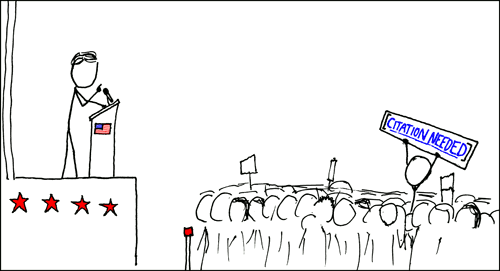78 Why We Cite Sources

“Academic research leads us to the insight that comes from gaining perspectives and understandings from other people through what we read, watch, and hear. In academic work we must tell our readers who and what led us to our conclusions” (“Ethical Use & Citing Sources”).
When we engage in conversations with other people, we often say things like, “I heard on the news today that…” or “The cashier at the store said…” When we do this, we not only back up and further support the point we are trying to make, but we also give more credibility to what we are saying by letting others know the origin of the information. It is also a good idea to let others know where our information came from when engaging in a scholarly conversation. A citation is a mention to another source and the phrase “citing your sources” means you’ve communicated the sources of information that you’ve used in your own work.
It is unethical to use somebody else’s information in your own work and not cite where you got that information (see section on Plagiarism and Academic Integrity, next). As long as you give credit where credit is due, using information from others to support your own thoughts, opinions, and research findings is good practice. Not only does it acknowledge the hard work of others, but it also shows that you did your research on the topic, you know what information exists about it, and you can integrate your knowledge into the existing research and contribute to the scholarly conversation.
The following video [2:47] by the Linscheid Library at East Central University has a great summary of what citations are and why we use them:
https://www.youtube.com/watch?v=iF8pgwwx2KM
Note: Turn on closed captions with the “CC” button.
Concept Review Exercise: Why Use Citation
Sources
This section includes material from the source book, Introduction to College Research, as well as the following:
“Citation: A (Very) Brief Introduction” by NCSU Libraries is licensed under CC BY-NC-SA 3.0
“Ethical Use and Citing Sources” by Teaching & Learning, Ohio State University Libraries is licensed under CC BY 4.0
Image: “Wikipedian Protester” by xkcd is licensed under CC BY-NC 2.5
“Why Cite?” YouTube, uploaded by Linscheid Library, 8 December 2020. Licensed under CC BY-NC 4.0.
Original material by book author Sarah Burkhead Whittle.
A reference to another source of information.

